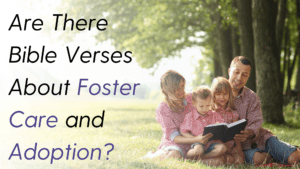The night after Mrs. Richardson’s class talked about family histories, Preston Bradley slept on the stairs.
“What are you doing here, Sweetie?” his mom asked the next morning.
Preston grasped his mother’s arm and clung with all his 5-year-old strength. “I thought you would leave,” he said.
The previous morning, Mrs. Richardson had cheerfully offered her version of Preston’s life story to the kindergarten class: “Preston was abandoned at an orphanage in Mexico by his real parents. Now he lives with the Bradleys.”
If his real parents could sneak away like that, why not his new parents too? Preston decided that if he slept on the stairs, he would hear them trying to escape, grasp their ankles and beg them to stay.
Most of the Mrs. Richardsons of the world mean well. They’re genuinely interested in the adoption process. They want to talk about it. Unfortunately, they don’t know how. Often their well-intended questions and comments may actually harm members of adoptive families — especially kids.
It’s fair to assume that most Americans view adoption positively. Families in the U.S. adopt over 120,000 children each year. Adoption “success” stories abound in our newspapers and magazines. Churches and social organizations affirm its value.
Unfortunately, our nation’s adoption vocabulary tells a different story. Many people’s comments contain subtle implications that adoption is an inferior or illegitimate way to start or join a family.
Marietta Spencer, a social worker specializing in adoption language, notes that words shape our impressions of ourselves and the world around us. She concludes that, for the sake of adoptive families and birth parents, people should learn to speak differently about this family-building method. Spencer even developed a list of phrases she described as Respectful (or Positive) Adoption Language (RAL/PAL).
When I first heard of RAL in adoption training, I was skeptical. Wasn’t this just another example of political correctness gone awry? But as people began to ask us questions about our Russian daughter, I started to comprehend the nuances Spencer discussed. Surely our coworkers didn’t believe creating a real family was contingent upon giving birth. Surely our friends would never intentionally make our daughter doubt she belonged with us. But their comments could easily confuse a child developing her identity.
Below are examples of questions we received from friends, family and strangers. I’ll also share what I wish they’d said:
| Question | Interpretation and Explanation | A Better Way |
|---|---|---|
| “Do you think you’ll ever have one of your own?” | Adoptive parents will feed, clothe, nurse, educate, support and love this child. Comforting her when she’s sick, attending soccer games and counseling her through tough times will fall on their shoulders. This child is “their own” in every way that matters. (This question could be particularly cutting and invasive to a couple who has tried unsuccessfully to conceive.) | If you must ask, try “Do you plan on having any birth children?” |
| “Do you know anything about her real parents?” | What or who is a “real” parent? Conceiving and carrying a child are important, but those are small steps in a much larger process. As a verb, parent means “to raise and nurture.” Alongside this definition, many dictionaries include a fitting quote by sociologist and author Ashley Montagu: “A [creator/life-giver] who does not parent the child is not its parent.” | “Do you know anything about her birth parents?” |
| “Was she illegitimate?” | No child is illegitimate! Each human being is precious. Children born out of wedlock or in other less-than-ideal circumstances still have the potential to impact the world in amazing ways. Being branded with ugly labels may keep them from reaching their full potential. | “Was she born to a single mother?” |
| “What kind of person would give away/abandon such a beautiful child?” | Sadly, this may be what happened. On the other hand, birth parents may have agonized over the decision and chosen to do what was best for the child. It’s important not to pass judgment without knowing the facts — particularly in front of a child. Additionally, adoptees often wrestle with abandonment issues all their lives. Your positive words may help assure them they are valuable and wanted. | “It must have been sad for someone to relinquish such a beautiful child! But it’s great that she has a good home with you!” |
| “How much did she cost?” | People are not bought and sold. The process may be costly — the agency fees, travel, etc. But this question suggests children are commodities rather than human beings. It’s best not to ask about the cost unless the parents offer information or you are earnestly researching adoption for yourself. If you’re just curious, stay that way. | “If this isn’t too personal a question, how much does the adoption process cost? If you’d rather not discuss that, I understand.” |
| “So, this little one is an orphan?” or “What a sweet girl. Is she an adopted child?” | Our daughter was an orphan. She was adopted. But now, she’s just our daughter. You wouldn’t say, “This is my caesarean-section daughter.” How she came into the world or into our family isn’t the issue. Now that she’s one of us, our goal is to focus our similarities rather than our differences. | “So, she joined your family through adoption? That’s wonderful! She laughs just like you do.” |



















